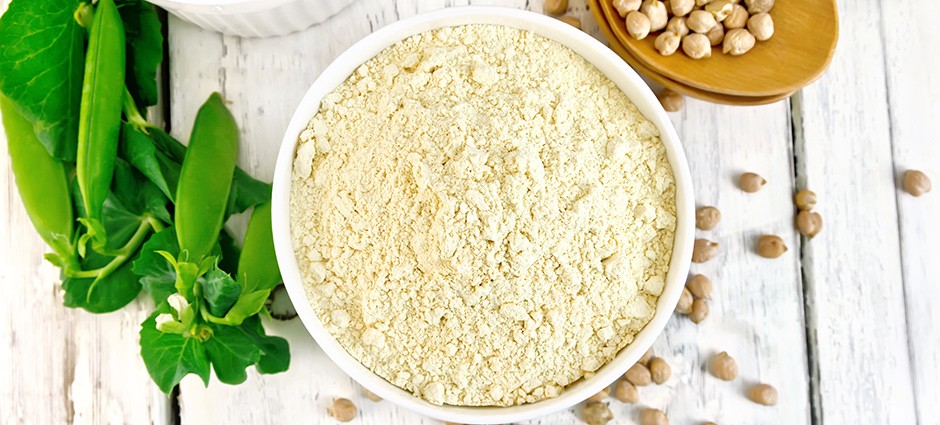How do you feel about pea protein and other legume proteins growing in popularity? Is there potential for developing an allergy if they’re overused?
The presence of legumes, which include black-eyed peas, split peas, beans, soy, peanuts and lentils, in our diets is something to celebrate! Many of these powerhouse foods are a good source of fiber, protein, iron and zinc. We should strive for 1 1/2 cups of legumes weekly, plus one serving of soy (tofu, soy milk, edamame, tempeh, etc.) daily. Double this amount if you follow a strict plant-based diet.
Protein supplements made from pea and soy protein offer a safe and effective alternative for those who can’t tolerate milk, while “faux meats” with added legume protein can easily be substituted for their animal-derived counterparts.
The major eight allergens are peanuts, tree nuts, fish, shellfish, eggs, soy, milk and wheat. These foods are responsible for 90 percent of all food allergy reactions. There is no evidence that eating more of a food (even soy) increases your chance of developing an allergy to that food. Research has not determined what causes food allergies, but a family history of food allergies or related conditions like eczema and asthma could increase risk.
Have a nutrition- or diet-related question? Send it to ed****@*******************ne.com.
A registered dietitian with Kroger, Molly provides private nutrition-counseling services, and has been a public speaker, radio talk-show guest, blog author and TV news presenter for Kroger. She enjoys helping customers simplify the confusing world of nutrition labels, dietary intolerances, weight management or plant-based nutrition. When she’s not at work, you can find her at a hip-hop dance class, snuggling with her cats or working on her food-photography skills.



